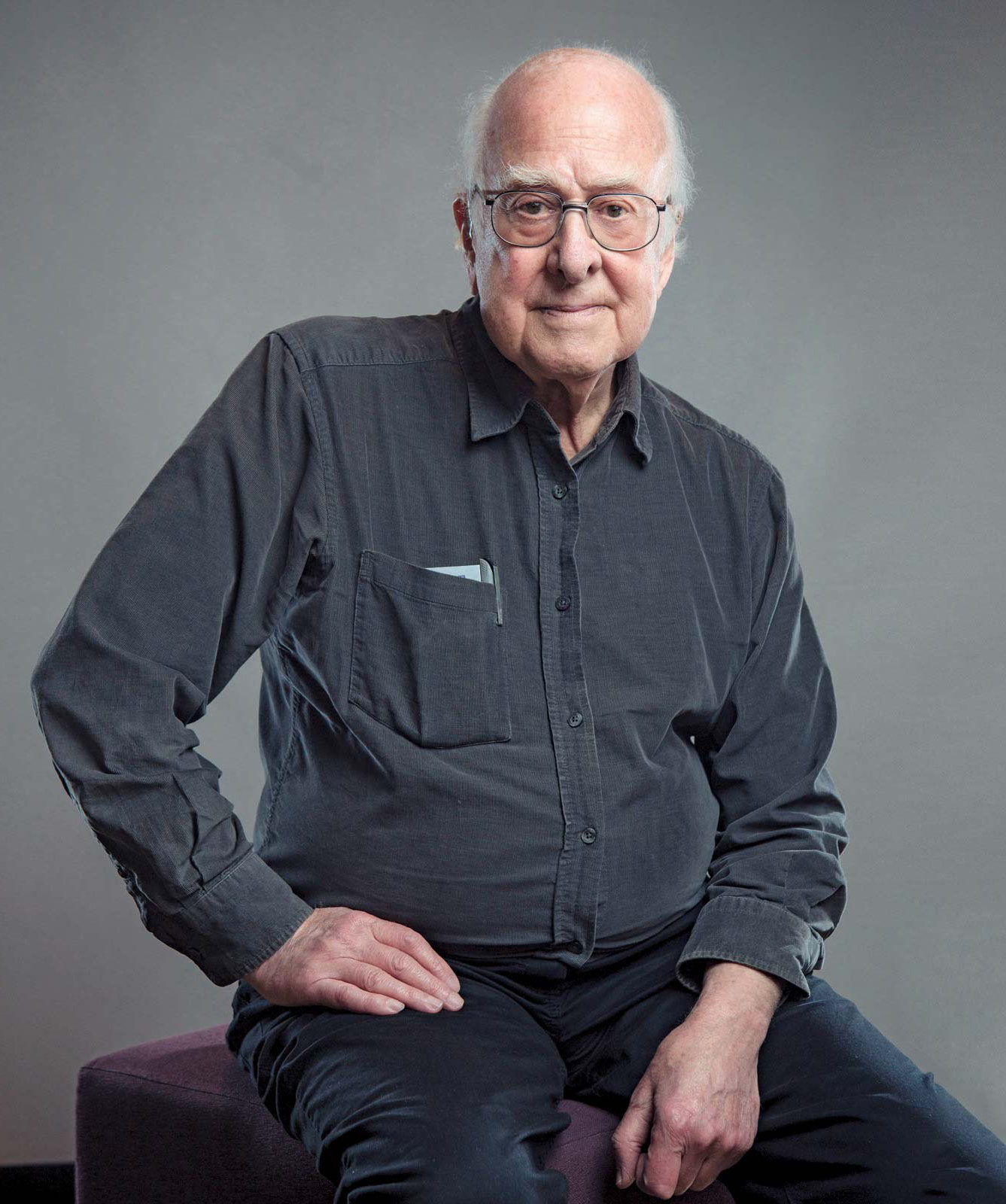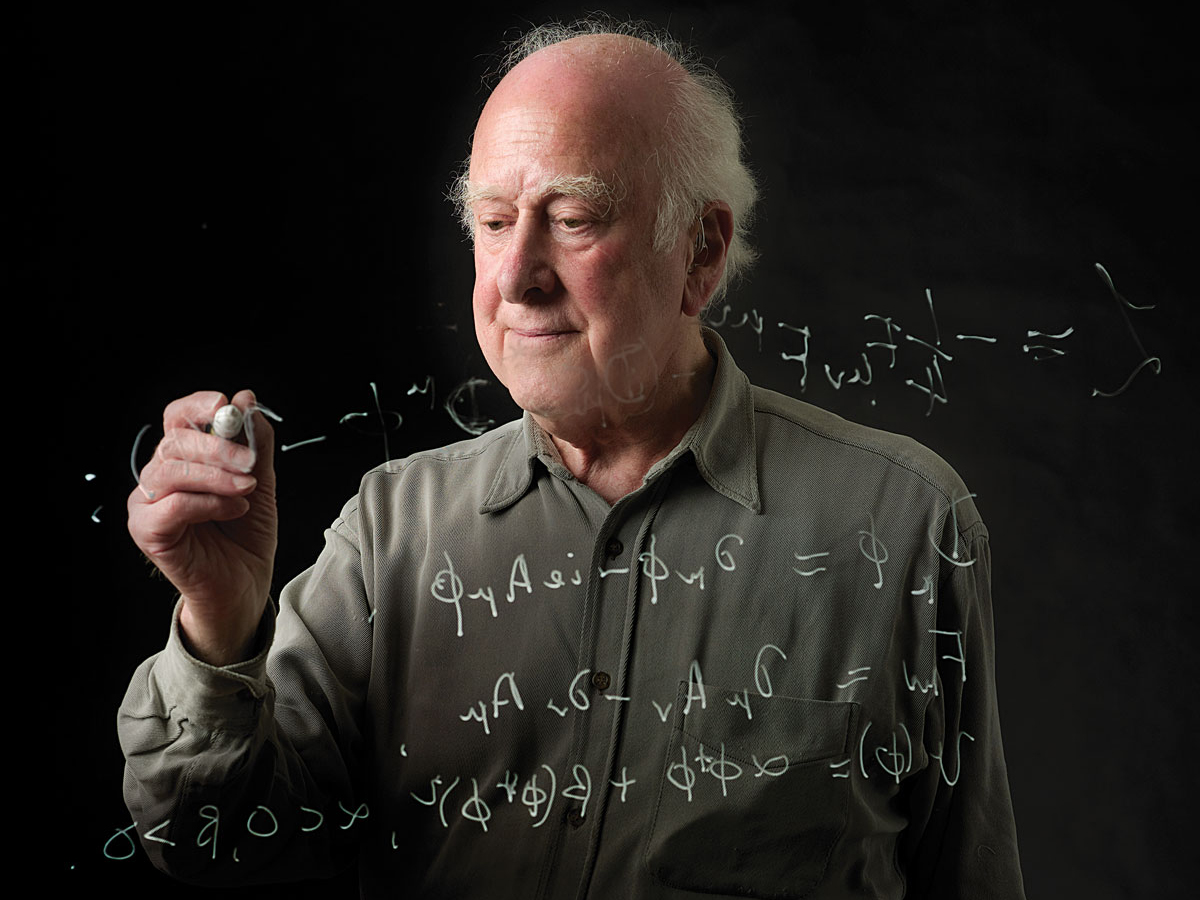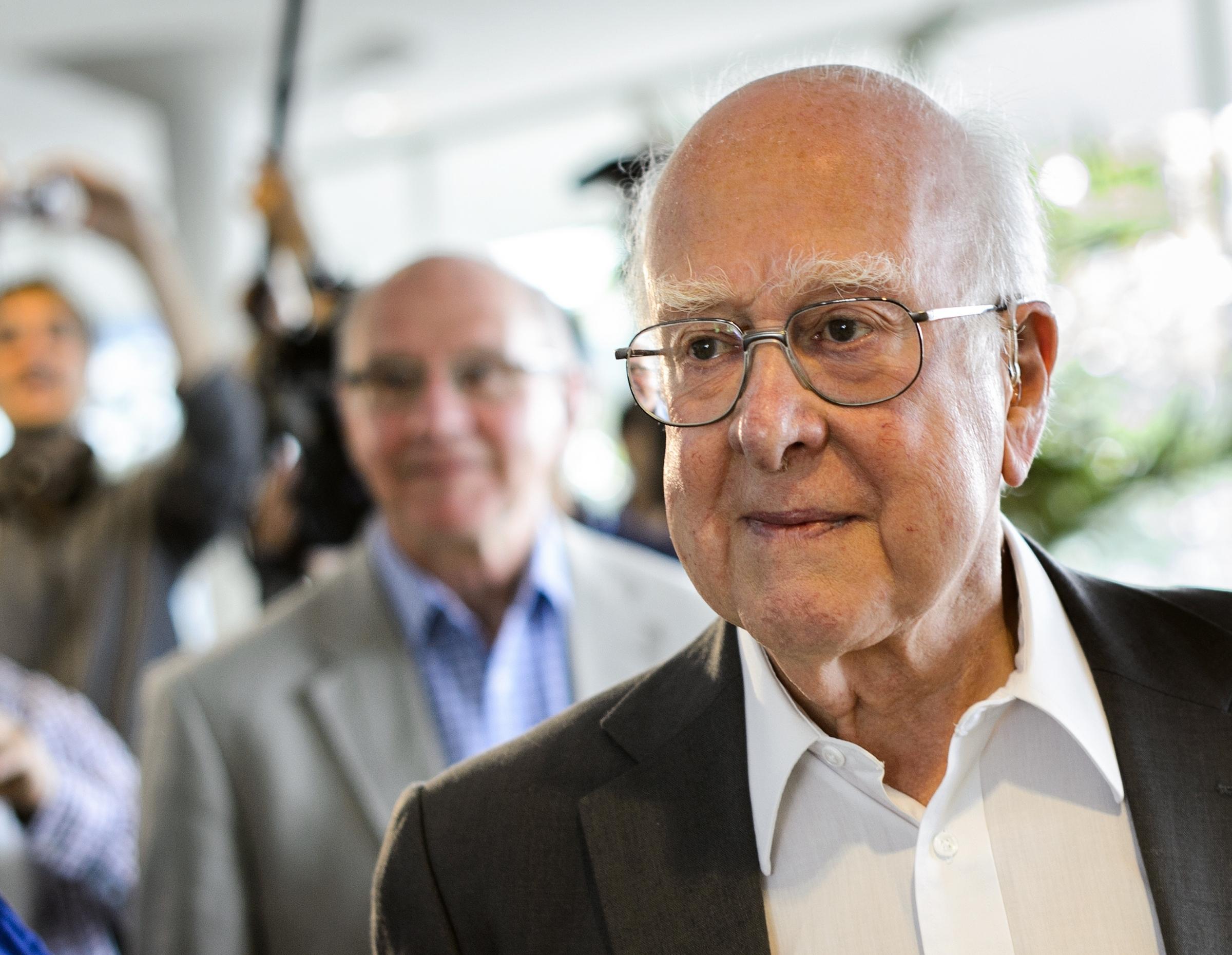

What did it mean to him that the particle was finally detected? The discovery of the Higgs boson came nearly 50 years after Higgs’s prediction, and he said he never expected it to be found in his lifetime. He sometimes says, “I’m primarily known for three weeks of my life.” I say, “Yes, Peter, but you spent two years preparing for that moment.” And because he had done that hard work and was still trying to deepen his understanding of this very profound concept, when a paper turned up on his desk posing a related question, Higgs happened to have the answer because of the work he’d done. Higgs had spent two to three years really trying to understand a particular problem. But being in the right place at the right time, you have to recognize it. It’s easy to dismiss it as luck, and clearly luck was part of it. Higgs is unique in this being once and once only. In physics, the people who have done really big things tend to do many big things. Yes, but how many of us can say we’ve even had one really brilliant idea? There’s no doubt that he had a really brilliant idea. You quote Higgs as saying that this idea was “the only really original idea I’ve ever had.” Do you think that’s true? That, to my mind, is why Peter Higgs the person is still elusive to me even though I’ve known him for 40 years. My style is to work in isolation and occasionally have a bright idea.” He is a very retiring person who was being thrust into the limelight. One of the biggest shocks I had when I was interviewing him was when he said the discovery of the boson “ruined life.” I thought, “How can it ruin your life when you have done some beautiful mathematics, and then it turns out you had mysteriously touched on the pulse of nature, and everything you’ve believed in has been shown to be correct, and you’ve won a Nobel Prize? How can these things amount to ruin?” He said, “My relatively peaceful existence was ending. But Higgs the man emerges in your book as an elusive person as well. Certainly the Higgs boson itself was elusive and took physicists decades and many billions of dollars to find. Scientific American spoke to Close about the particle, the quest to find it and the man who began it all. Physicist Frank Close tells the story of Higgs and the physicist’s big idea in his new book Elusive: How Peter Higgs Solved the Mystery of Mass (Basic Books, 2022). When he shared the Nobel Prize in Physics the next year, Higgs left his home in Edinburgh and camped out at a pub across town on the day of the announcement so the prize committee wouldn’t be able to reach him. Yet the finding, however scientifically thrilling, pushed a press-shy Peter Higgs into the public eye. Physicists believed this story for many decades, but it wasn’t proved until July 4, 2012, when researchers from two experiments at the LHC announced their discovery and confirmed the prediction Higgs made all those years ago.

The particle and its associated Higgs field turned out to be responsible for giving all other particles mass and, in turn, creating the structure of galaxies, stars and planets that define our universe and enable our species.

But gradually it became clear that the Higgs boson was not just an exotic sideshow in the particle circus but rather the main event. For years, the significance of the prediction was lost on most scientists, including Higgs himself. The existence of this tiny object had first been proposed by physicist Peter Higgs in 1964. The machine built in part to find this particle, the 27-kilometer-long, circular Large Hadron Collider (LHC) at CERN near Geneva, had fulfilled its promise by showing signals of a new fundamental bit of nature that matched expectations for the Higgs. The particle, predicted 48 years earlier, was the missing piece in the Standard Model of particle physics. Ten years ago scientists announced one of the most momentous discoveries in physics: the Higgs boson.


 0 kommentar(er)
0 kommentar(er)
